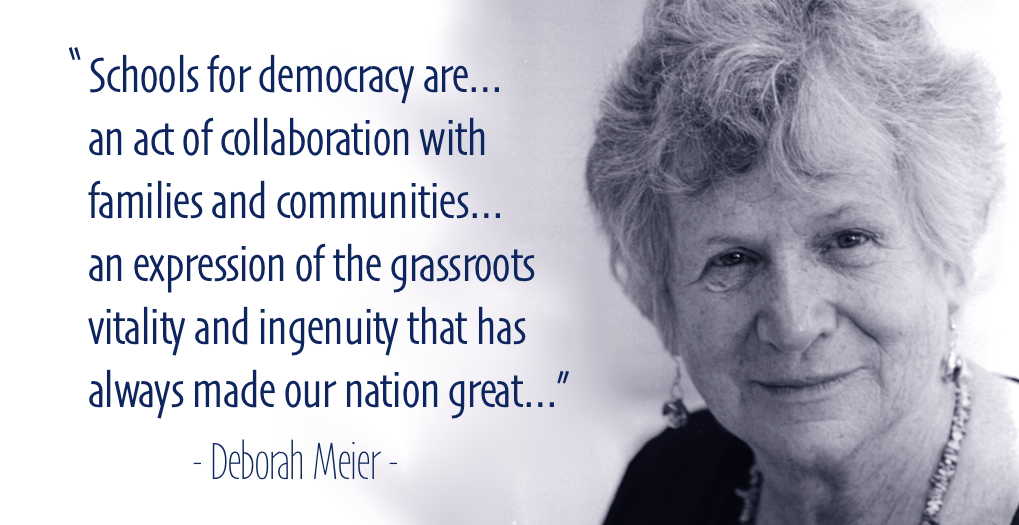Communities of Co-Creators

Deborah Meier continues her conversation with Harry Boyte. To read their full exchange, please visit here.
Dear Harry and friends,
Well, the one good thing about being out of service for so long—with my peculiar eye condition—is that I think a lot about what to say.
Democracy is one of those topics that can be talked about substantively and operationally for ever, and has been.
This election reminds me about the limited value of being able to vote (better than not being able to)—and shout what you think from the rooftops or social media or even a letter-to-the-editor. It's been a long time since The New York Times has published anything I sent them.
So democracies—so-called—can range from complete frauds to pretty strong and healthy vehicles for self-governance. The latter is always a compromise, since some good ideas contradict each other—or are fuzzy. If we want those who are most affected by decisions to have the most to say that runs counter to another idea—that everyone has a right to a voice and vote even if only partially affected. Should the school custodian have a voice and vote on curricular decisions? School schedules? Classroom organization?
Without democracy liberty is a joke, but with it it's often pretty close to it—if we mean (as we mostly do) my own individual right to do what I want. Who decides when what "you want" interferes with others having what "they want"? I know of no perfect solution—but that doesn't mean I'm not always seeking a better one.
Of course the greater the inequality—means of access of media, to hiring lobbyists and researchers to back-up one's views—the harder it is to imagine any democracy having a lot of meaning. Still we've seen even in this unequal U.S. times when the rich and powerful have been defeated. But it's rare and generally requires a division of opinion and self-interest among the powerful.
But in the sense that we use the word—it assumes the existence of a community with community self-interests that are shared, although of course arguable. It's hard today to think about a community at all—some entity outside of our immediate personal circle—whose interests we would sacrifice for—if convinced.
A more full democracy assumes some locations where people easily get a range of information and opportunities to share what they think with others who think differently. Scale, of course, makes it harder. But even in small schools we had to devote more time than we imagined to create such shared conversation, and that would not have been possible if the participants didn't usually get Communities of Co-Creators - Bridging Differences - Education Week:
